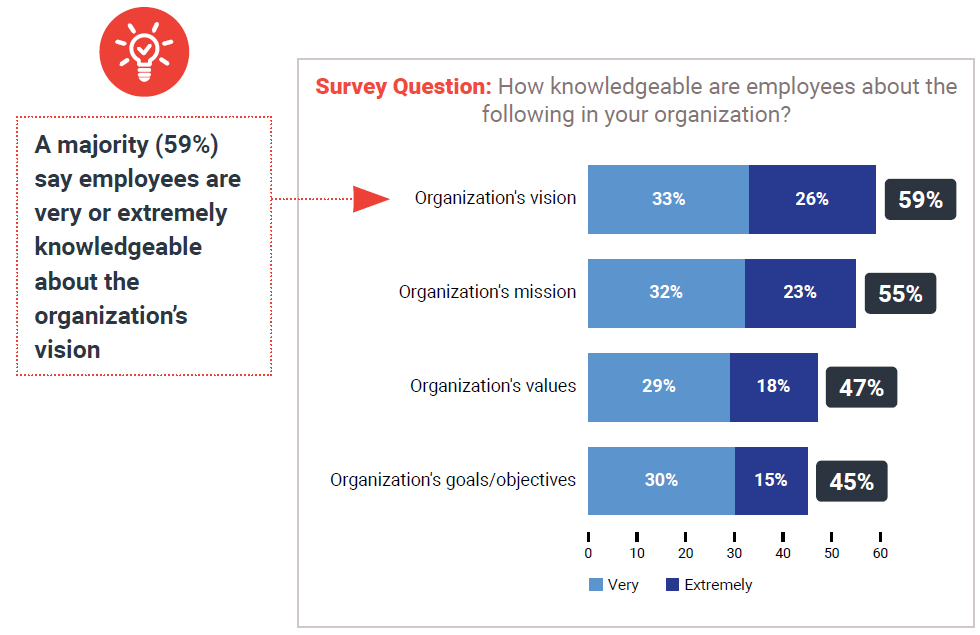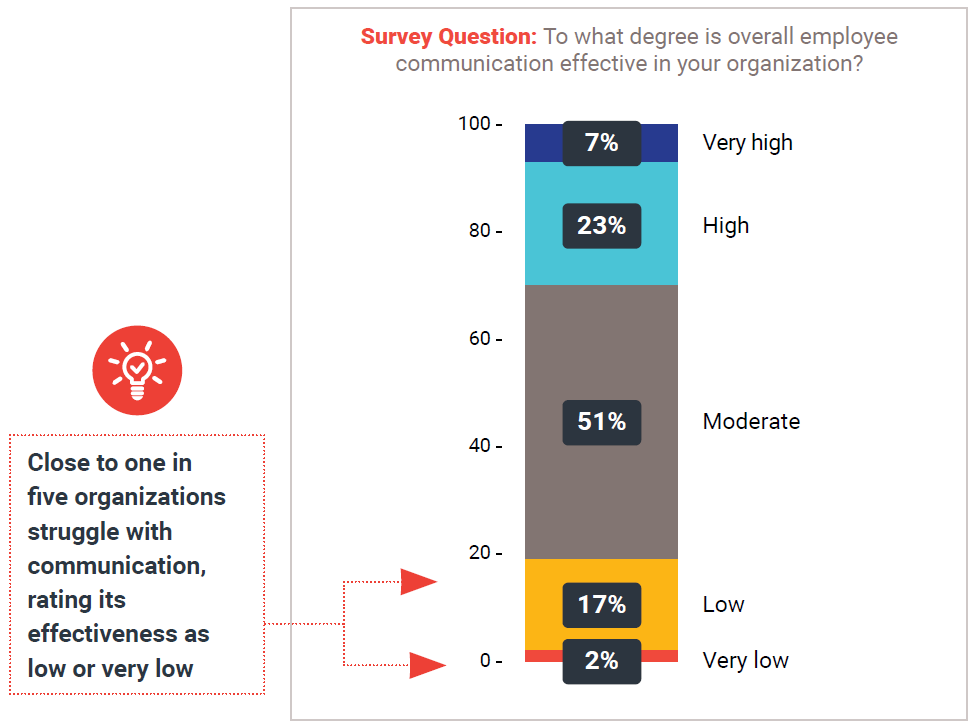The effectiveness of employee communication is often disappointing.

Less than one-third say employee communication is highly or very highly effective in their organizations
This research indicates that highly effective communication is both rare and difficult. Only 30% say their employee communication has a high or very high degree of effectiveness. About half of organizations (51%) feel their organization’s communications are only moderately effective. Close to one in five struggle with communication, rating its effectiveness as low or very low.
HR’s communication to employees is somewhat better than the organization’s overall employee communications
While most respondents feel the overall effectiveness of employee communications is moderate at best in their organizations, they have a more positive assessment of HR’s ability to communicate. Nearly half (46%) report that HR is effective at employee communications to a high or very high degree. Of course, there may be some bias since respondents are themselves HR professionals.
Still, this raises a question. If an HR department feels it is highly effective at employee communication but the overall organization is not, should the department step up and volunteer to play a bigger role?
Of course, HR’s perception should be checked against the views of employees themselves. Organizations can conduct surveys that ask employees to gauge the effectiveness of employee communications in their organizations and departments. This may give the organization a sense of which functions are best at employee communications.
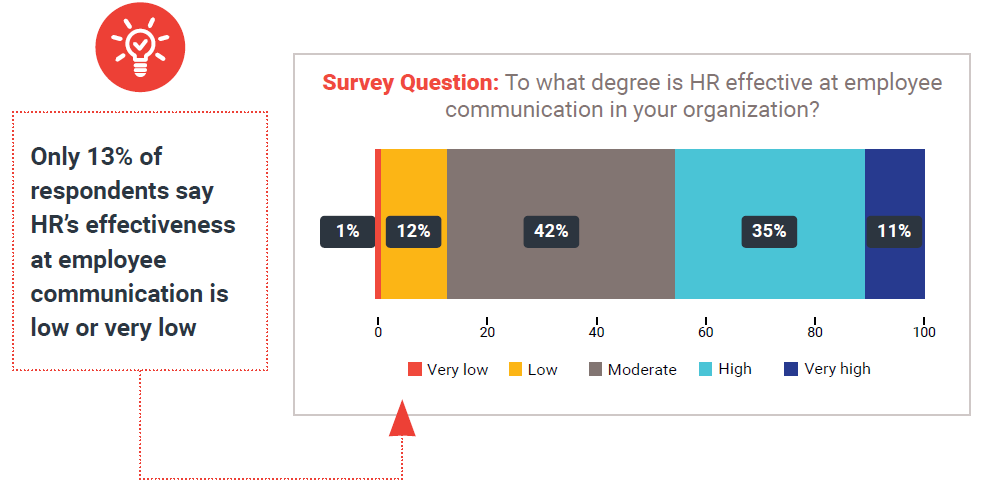
In one-quarter of organizations, employees feel the organization doesn’t listen to them
One thing people care about is being listened to. A quarter of respondents say their employees feel their organization listens to them to only a low or very low extent. On the other end of the spectrum, 29% say employees feel their organizations listen to them to a high or very high extent.
Almost half of the respondents (47%) say that employees only feel their organizations listen to them to a moderate extent. It is not hard to predict how that makes employees feel and hence how it affects the employee experience. The number of organizations that listen well to employees illustrates that it’s possible to do so, and leaders in organizations that do not listen well can work out how to improve their poor performance on this metric.
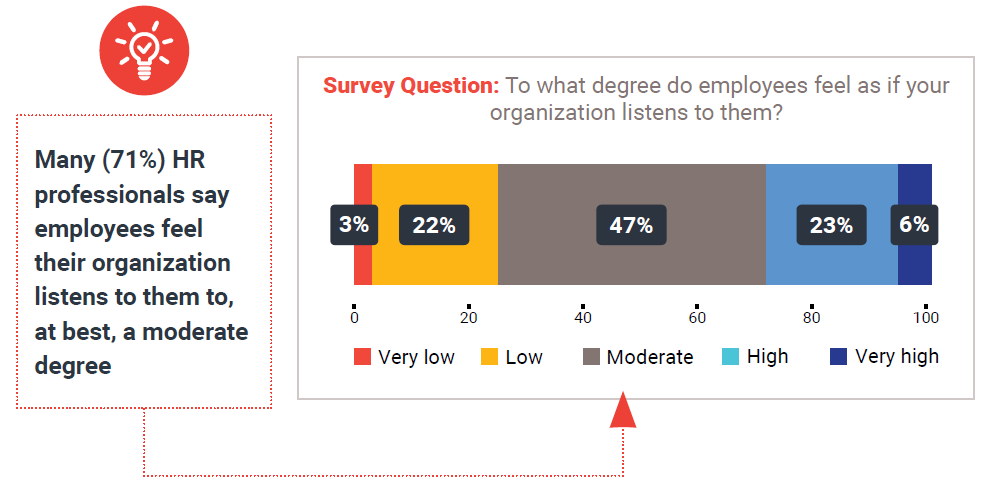
Only one-third say managers keep their direct reports informed about important matters to a high or very high degree
In addition to being listened to, people like to know what’s going on. Most managers do not do a great job of keeping employees informed about important organizational matters; about two-thirds of respondents say their managers keep employees informed to a moderate, low or very low degree.
In an elite 8% of organizations, managers find a way of keeping their direct reports informed about important matters to a very high degree. This will have two effects on the direct reports. Firstly, they are more likely to focus on the right priorities if they know what is going on. Secondly, it will increase their sense of belonging knowing that their manager believes that they are important enough to be kept informed.
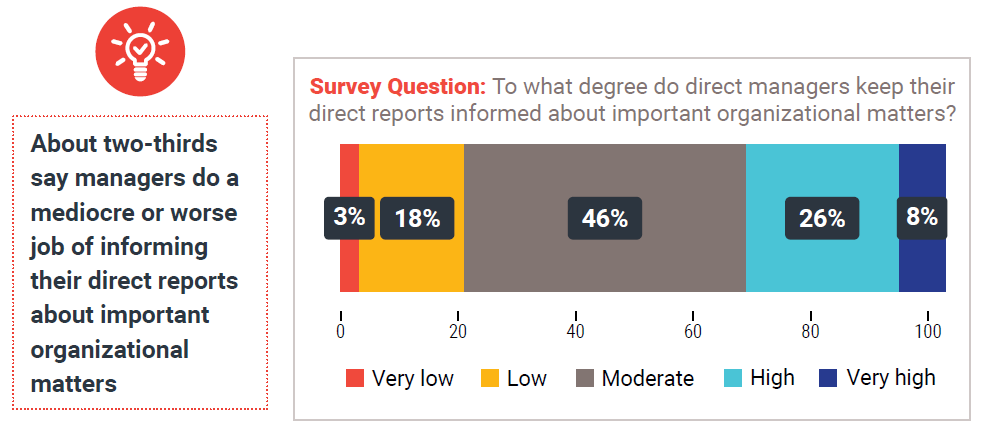
Fewer than half say employees are very or extremely knowledgeable about the organization’s values or objective
One of the reasons organizations invest in communications is so that employees become knowledgeable about the organization’s vision, mission, values, and goals/objectives. This helps enable everyone in the organization to work together as a cohesive whole.
However, many indicate there are considerable knowledge gaps in their organizations. The area with the best result is the organization’s vision, where 59% say employees are very or extremely knowledgeable. The poorest result is in regard to the organization's goals/objectives, where just 45% say employees are very or extremely knowledgeable.
